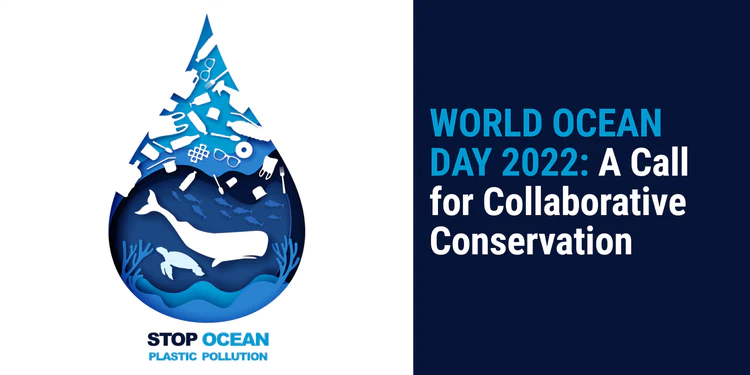It’s World Ocean Day! Coordinated and promoted internationally by The Ocean Project since 2002, World Ocean Day is an annual celebration on June 8th as well as a call for ocean conservation action throughout the year.
The United Nations started to officially recognize World Ocean Day starting in 2009. This celebration of our one shared ocean that connects us all brings together organizations and individuals from all kinds of groups and backgrounds.
“We as young people need to unite to take care of our planet and live in a more sustainable way,” said Nathany Herrera, World Ocean Day Youth Advisory Council member from Brazil, “The words that guide us are collaboration and resilience; Collaboration because we should not rely on a few people acting perfectly, but millions of people acting imperfectly with a commitment to real change and being resilient in the face of countless problems that we are yet to face.”
For 2022, World Ocean Day is raising awareness and support for the global movement to protect at least 30% of the world’s lands, waters, and oceans by 2030 (30×30). Safeguarding at least 30% through a network of highly protected areas can help ensure a healthy ocean and climate.
Facts About Single-Use Plastic in the Ocean
Did you know that over the last 10 years, humans have produced more plastic than during the entire last century?
At current rates plastic is expected to outweigh all the fish in the sea by 2050! Plastic pollution has a devastating impact on wildlife as they ingest plastic or get entangled in it. Here are a few facts about single-use plastic pollution:



Lifecycle of Plastic Products
Despite efforts to improve the recycling of single-use plastics, much of the plastic produced is not recycled. Estimates suggest that as little as 9% of waste plastic is recycled. Of the rest, 12% is incinerated and the remainder ends up in landfills or the natural environment. This infographic shows how long it takes different types of plastic to biodegrade – with some taking 400+ years!
How You Can Help Conserve Our Oceans
The good news is that we can fight back against plastic pollution. Every seemingly small action we take to reduce our consumption of plastic is a big step in protecting the future of our planet and our precious wildlife. Follow these tips to help conserve our oceans and marine life:
- ✅ Use a reusable water bottle instead of single-use plastic bottles (don’t forget a reliable water filter for your home too!)
- ✅ Bring a reusable bag when you go shopping and say no to single-use plastic bags
- ✅ Keep reusable straws and utensils in your car or bag for when you’re on-the-go
Learn more about how you can act to make a difference at WorldOceanDay.org and help spread the word!
ZeroWater prides itself on being an agent of change by providing a reliable and accessible way for everyone to refill reusable water bottles with delicious tasting water from our ZeroWater pitchers. With our filters, our customers should feel great about topping off their reusable water bottle with delicious tasting filtered water, as opposed to grabbing a single-use plastic bottle on their way out the door. In fact, one 5-Stage filter is the equivalent of 150 single-use plastic bottles and one EcoFilter is the equivalent of 900 single-use plastic bottles!


